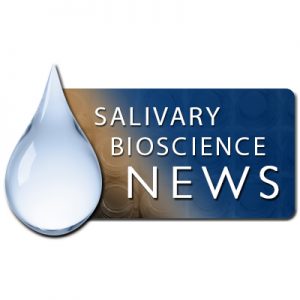Individual responses to psychosocial stress are influenced by a neural mechanism
January 13, 2017Prefrontal Cortex Activity Is Associated with Biobehavioral Components of the Stress Response Author: Wheelock MD, et al (2016), Frontiers in Human Neuroscience. Contemporary theory suggests that prefrontal cortex (PFC) function is associated with individual variability in the psychobiology of the stress response. Advancing our understanding of this complex biobehavioral pathway has potential to provide insight […]
Post-competition salivary testosterone levels higher in winners
December 16, 2016Effects of competition outcome on testosterone concentrations in humans: An updated meta-analysis Author: Geniole SN, et al (2016), Hormones and Behavior. A contribution to a special issue on Hormones and Human Competition. Since Archer’s (2006) influential meta-analysis, there has been a major increase in the number of studies investigating the effect of competition outcome on […]
The stress response to perceived discrimination as indicated by salivary measures
December 6, 2016Perceived Discrimination, Racial Identity, and Multisystem Stress Response to Social Evaluative Threat among African American Men and Women Author: Lucas T, et al (2016), Psychosomatic Medicine. OBJECTIVES: Understanding individual differences in the psychobiology of the stress response is critical to grasping how psychosocial factors contribute to racial and ethnic health disparities. However, the ways in […]
Chronic caregiver-related stress linked to diurnal salivary alpha-amylase rhythms
November 29, 2016Diurnal Salivary Alpha-Amylase Dynamics Among Dementia Family Caregivers Author: Liu Y, et al (2016), Health Psychology. Objective: The study examined diurnal regulation of salivary alpha-amylase (sAA) in association with daily stressors, adult day services (ADS) use, and other caregiving characteristics. Method: A sample of 165 family caregivers of individuals with dementia (IWD) completed an 8-day […]
Determining the appropriate statistical approach for effective analysis of hormone ratios
November 21, 2016How to use and interpret hormone ratios Author: Sollberger S, et al (2016), Psychoneuroendocrinology. Hormone ratios have become increasingly popular throughout the neuroendocrine literature since they offer a straightforward way to simultaneously analyze the effects of two interdependent hormones. However, the analysis of ratios is associated with statistical and interpretational concerns which have not been […]
New Salimetrics Salivary Cytokine Panel Advances Research with One, Small Saliva Sample.
November 10, 2016New Salimetrics Salivary Cytokine Panel Advances Research with One, Small Saliva Sample. ((November 10, 2016) Salimetrics, the salivary bioscience company, today announced their latest offering in cutting edge salivary research with Salimetrics’ Salivary Cytokine Panel. The new cytokine panel measures IL-1 beta, IL-6, IL-8 & TNF-Alpha concentrations simultaneously using a single, 100 µl saliva sample [...]
Salivary uric acid modulates stress-related hippocampal activity
November 3, 2016The hippocampal response to psychosocial stress varies with salivary uric acid level Author: Goodman AM, et al (2016), Neuroscience. Uric acid is a naturally occurring, endogenous compound that impacts mental health. In particular, uric acid levels are associated with emotion-related psychopathology (e.g., anxiety and depression). Therefore, understanding uric acid’s impact on the brain would provide […]
Study demonstrates combined effects of salivary cortisol & DHEA-S in predicting depressive symptoms
October 24, 2016Concurrent and prospective associations between HPA axis activity and depression symptoms in newlywed women Author: Ge F, et al (2016), Psychoneuroendocrinology. We investigated the extent to which individual differences in activity of the hypothalamic pituitary adrenal axis (HPA) are associated with depressive symptoms among newlywed couples. Participants were 218 couples (M age 28.4 years; 94% […]
Salimetrics Supports Institute for Interdisciplinary Salivary Bioscience Research (IISBR) Event
October 20, 2016Salimetrics’ CEO, Hans Schroeder, recently attended a special presentation by Dr. Douglas Granger to celebrate the launch of the new Institute for Interdisciplinary Salivary Bioscience Research (IISBR) at the University of California, Irvine (UCI). The event was attended by Orange County and UCI community members who came to hear about the history and recent advances […]
Cortisol reactivity attenuates the association between PDE and behavioral problems
October 14, 2016Prenatal Drug Exposure and Adolescent Cortisol Reactivity: Association with Behavioral Concerns. Author: Buckingham-Howes S, et al (2016), J Dev Behav Pediatr OBJECTIVE: To examine stress reactivity in a sample of adolescents with prenatal drug exposure (PDE) by examining the consequences of PDE on stress-related adrenocortical reactivity, behavioral problems, and drug experimentation during adolescence. CONCLUSION: Findings […]
 Contact: Salimetrics (USA)
Contact: Salimetrics (USA)

